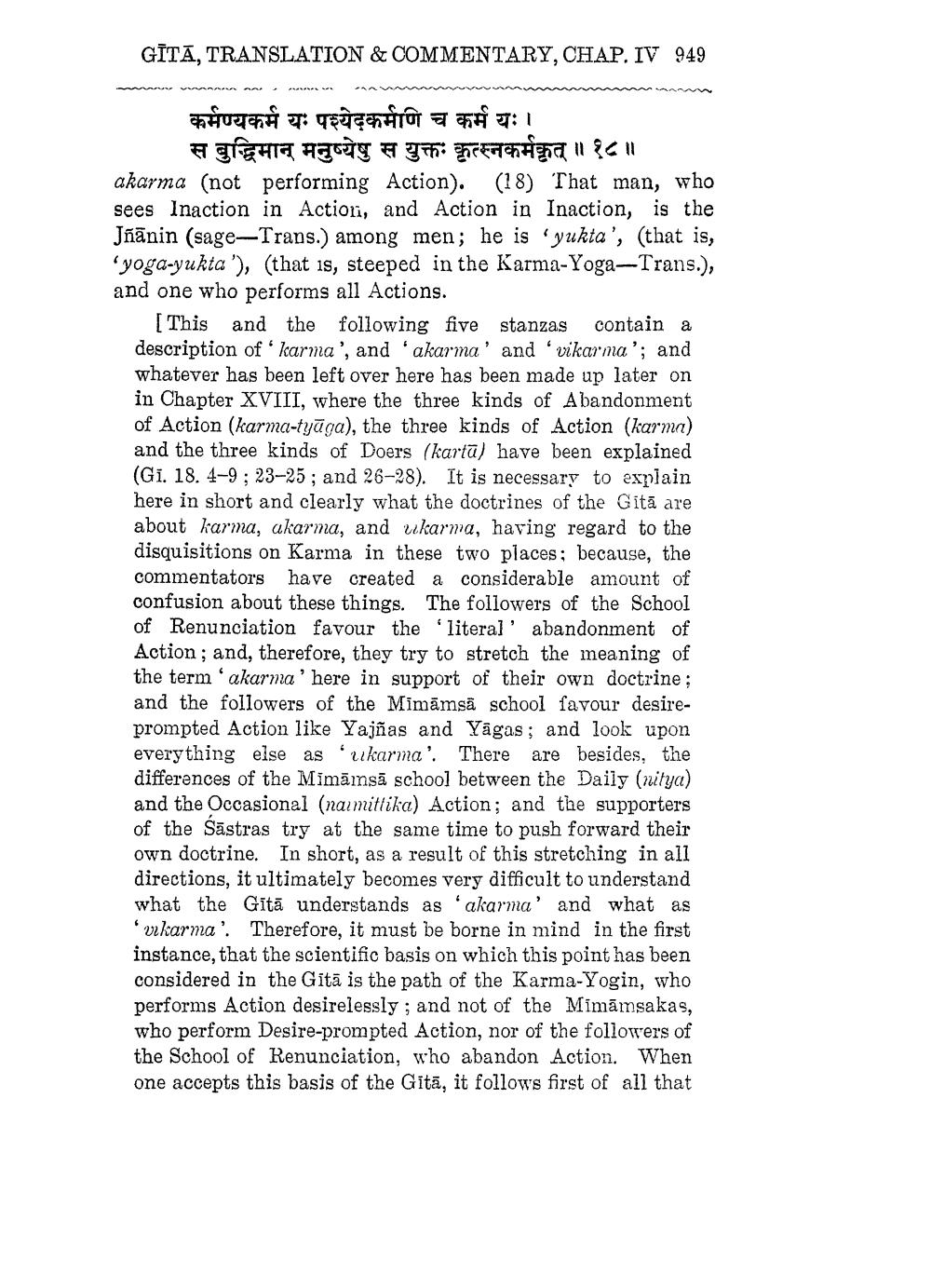________________
GĪTĀ, TRANSLATION & COMMENTARY, CHAP. IV 949
कर्मण्यकर्म यः पश्येदकर्मणि च कर्म यः।
स बुद्धिमान मनुष्येषु स युक्तः कृत्स्नकर्मकृत् ॥१८॥ akarma (not performing Action). (18) That man, who sees Inaction in Action, and Action in Inaction, is the Jñānin (sage-Trans.) among men; he is yukta', (that is, "yoga-yukta '), (that is, steeped in the Karma-Yoga-Trans.), and one who performs all Actions.
[This and the following five stanzas contain a description of karma', and 'akarma' and 'vikarma’; and whatever has been left over here has been made up later on in Chapter XVIII, where the three kinds of Abandonment of Action (karma-tyāga), the three kinds of Action (karma) and the three kinds of Doers (kartā) have been explained (Gi. 18. 4-9; 23-25; and 26-28). It is necessary to explain here in short and clearly what the doctrines of the Gitā are about karma, akarma, and u karma, having regard to the disquisitions on Karma in these two places; because, the commentators have created a considerable amount of confusion about these things. The followers of the School of Renunciation favour the literal' abandonment of Action; and, therefore, they try to stretch the meaning of the term 'akarma' here in support of their own doctrine ; and the followers of the Mimāmsä school favour desireprompted Action like Yajñas and Yagas; and look upon everything else as u karma'. There are besides, the differences of the Mimārsā school between the Daily (nitya) and the Occasional (naimittika) Action; and the supporters of the Sāstras try at the same time to push forward their own doctrine. In short, as a result of this stretching in all directions, it ultimately becomes very difficult to understand what the Gītā understands as 'akarma' and what as 'urkarma! Therefore, it must be borne in mind in the first instance, that the scientific basis on which this point has been considered in the Gītā is the path of the Karma-Yogin, who performs Action desirelessly; and not of the Mināmsakas, who perform Desire-prompted Action, nor of the followers of the School of Renunciation, who abandon Action. When one accepts this basis of the Gitā, it follows first of all that




